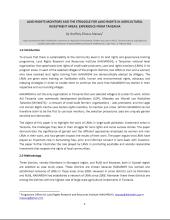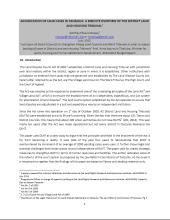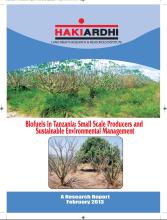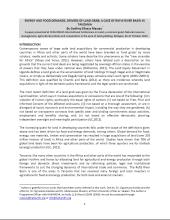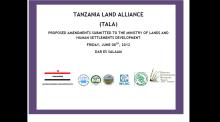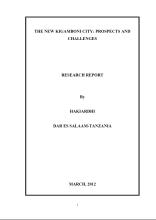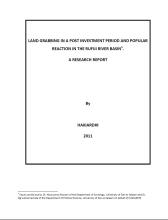Land Library
Welcome to the Land Portal Library. Explore our vast collection of open-access resources (over 74,000) including reports, journal articles, research papers, peer-reviewed publications, legal documents, videos and much more.
/ library resources
Showing items 1 through 9 of 27.This practical guide aims to help journalists in resource-rich countries identify, analyze and report on issues in the extractive industries. It offers tools for building convincing stories, research leads, and inspiration from experienced reporters.
This compilation of resources aims to help journalists cover the medium- to long-term impacts of the global pandemic on the governance of the oil, gas and mining industries in resource-rich countries.
To ensure that there is sustainability at the community level in its land rights and governance training programme, Land Rights Research and Resources Institute (HAKIARDHI), a Tanzanian national level organization that spearheads land rights of small-scale producers, uses land rights monitors (LR
This paper uses District Land and Housing Tribunal (DLHT) as a case study to argue that the principle conceived in the enactment of the law that established the tribunal is far from becoming a reality.
The purpose of this study was to assess the bio-energy sector in Tanzania and to critically inquire the threats, benefits and opportunities to smallscale producers and sustainable environment management.
Contemporary waves of large scale land acquisitions for commercial production in developing countries in Africa and other parts of the world have been branded as ‘land grabs’ by many scholars, media and activists.
A comprehensive legal analysis highlighting gaps and recommendations in the four selected land related legislations in Tanzania.
In early 2008 the government of Tanzania through the Ministry of Lands, Housing and Human Settlements Development –MLHHSD, initiated a project to develop a new city at Kigamboni area in Temeke district of Dar es Salaam region.
What has been the reaction of the rural producers and other land holders over these demands and actual land acquisitions? What does their reactions means in relation to ongoing land grabbing? While these questions are important this study was motivated by two major concerns.


